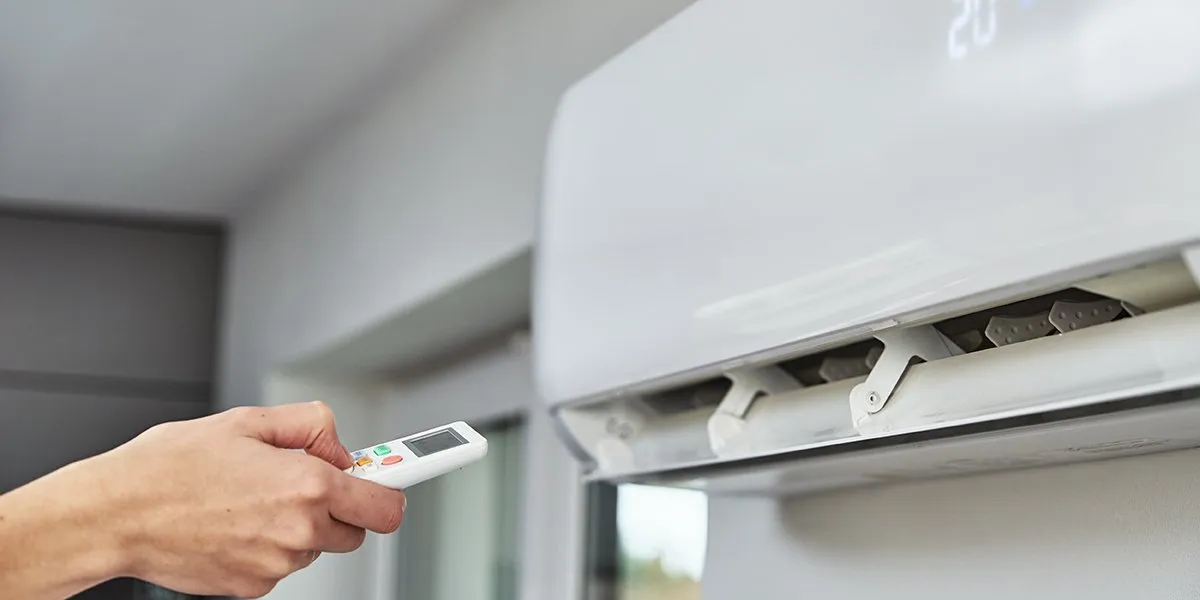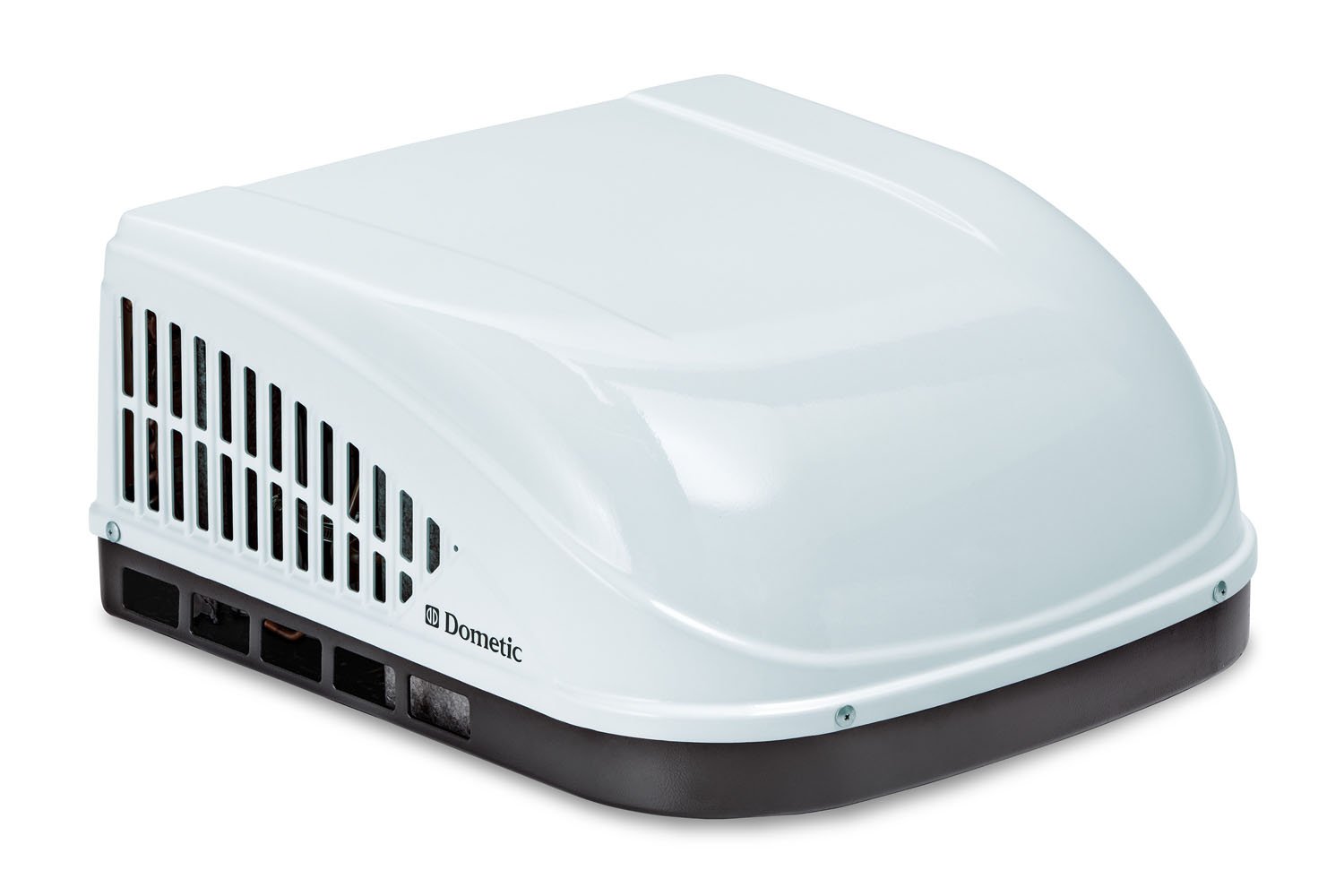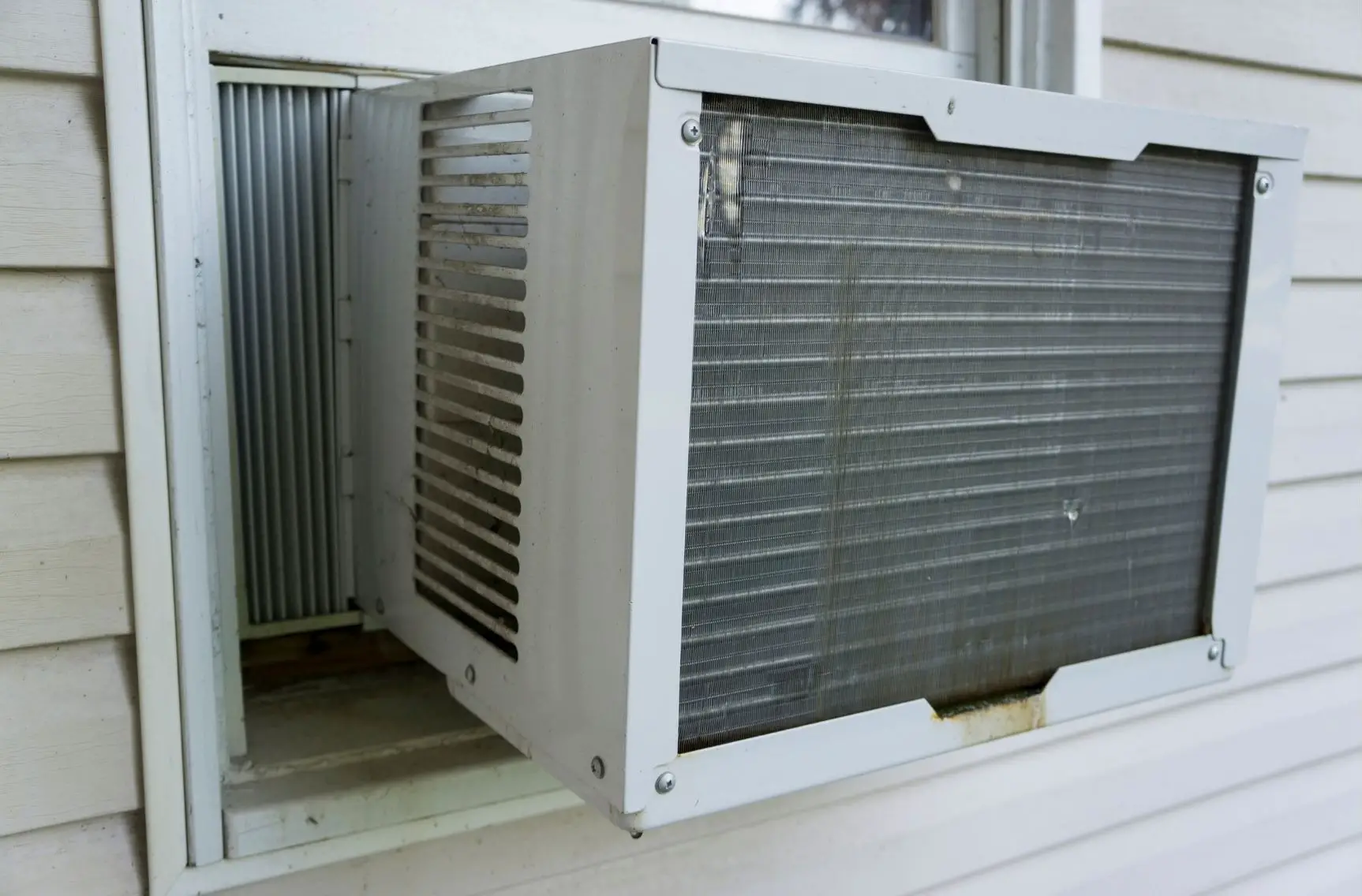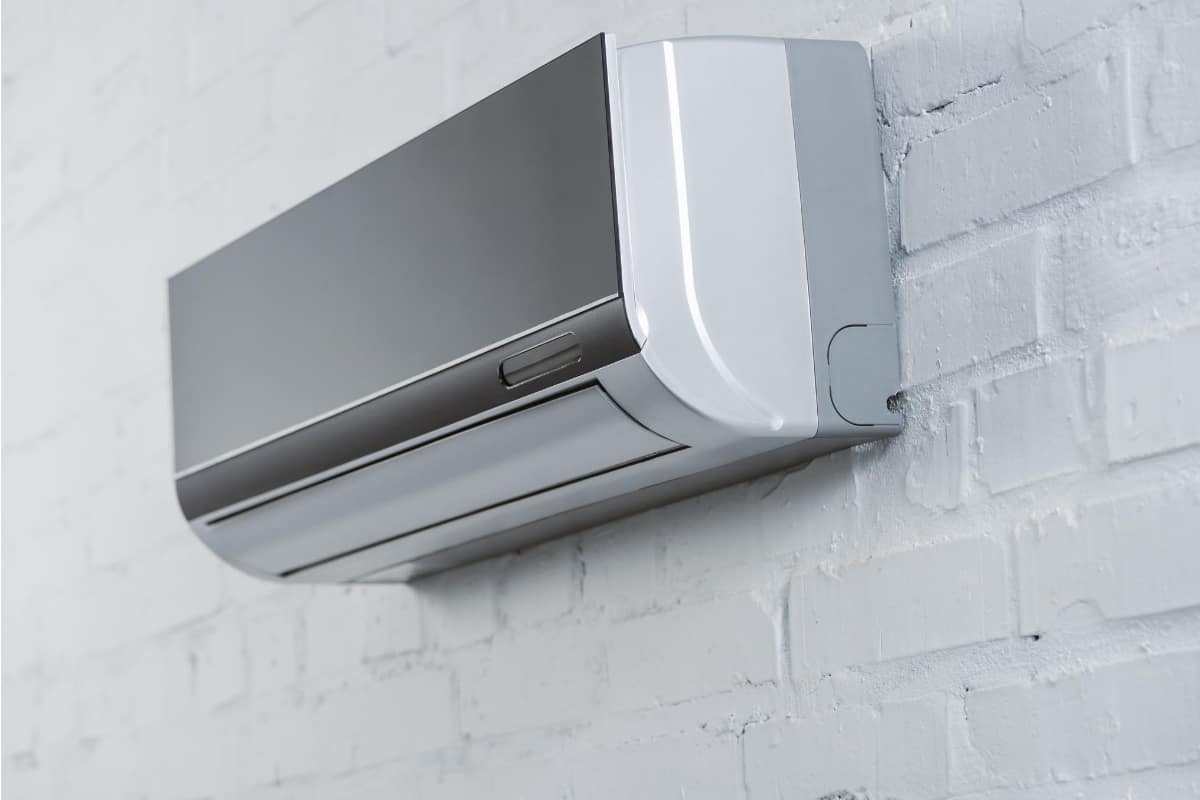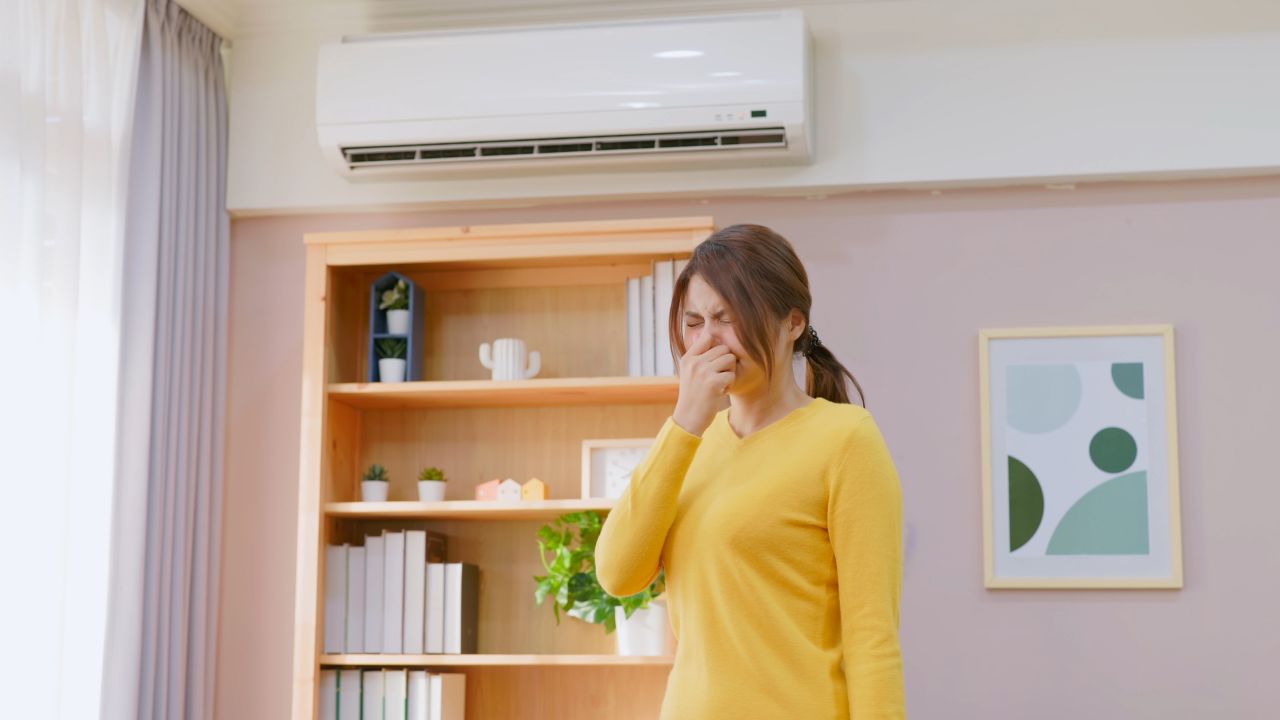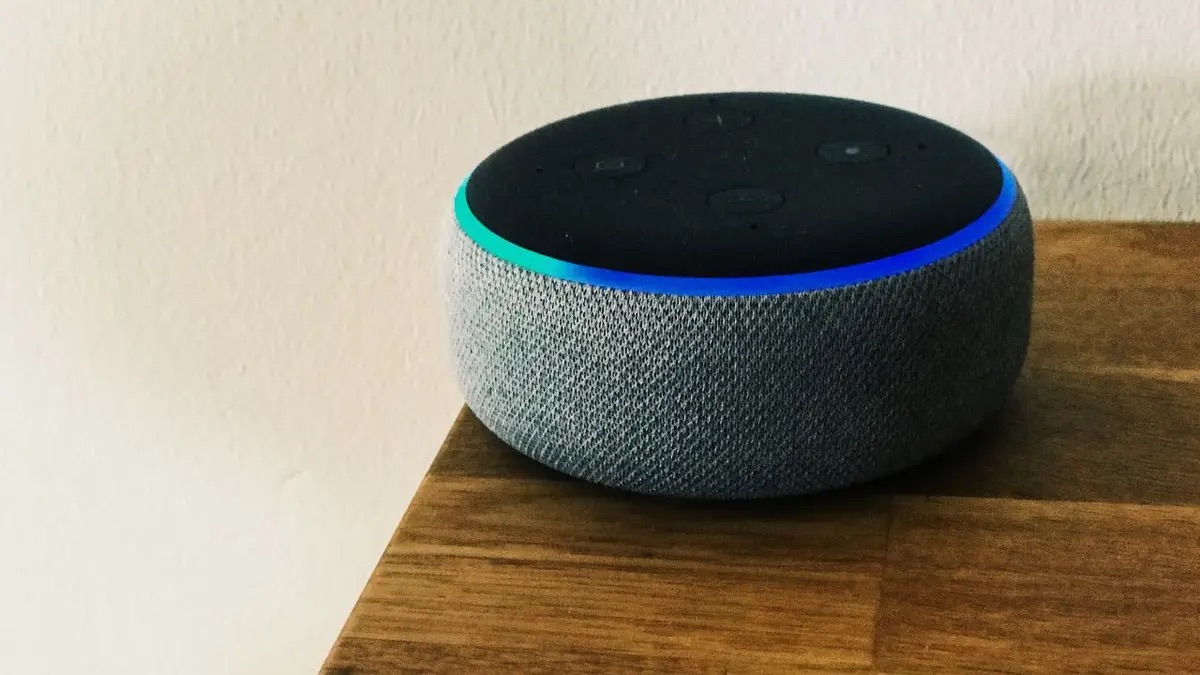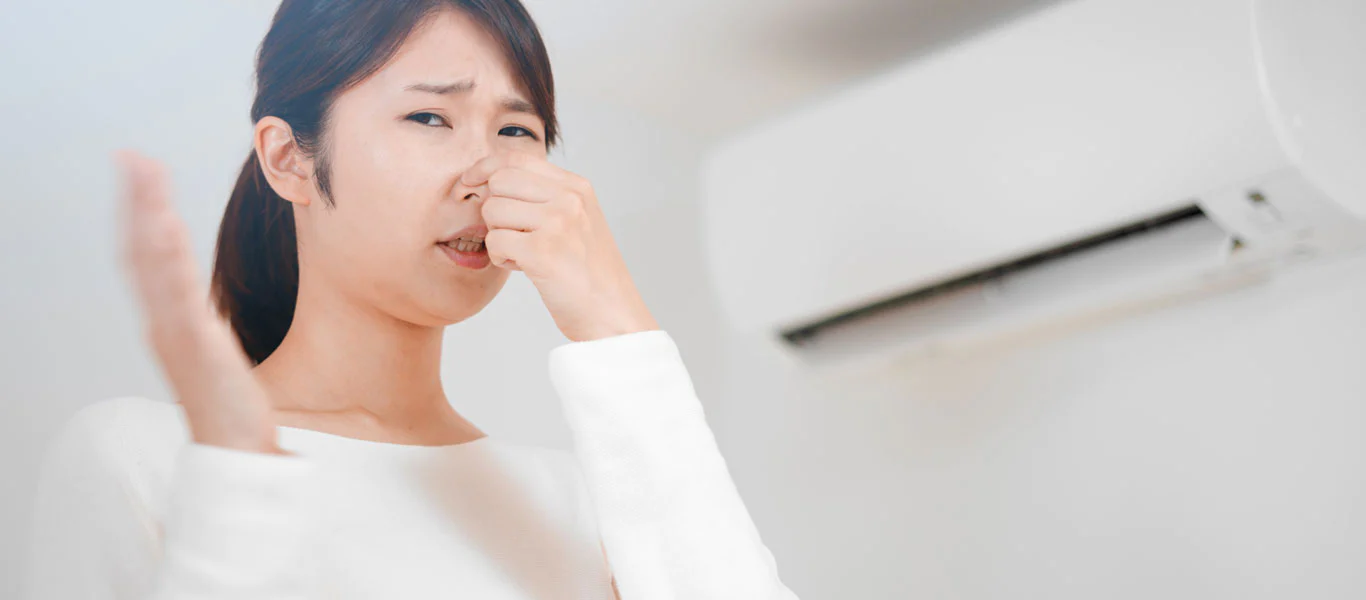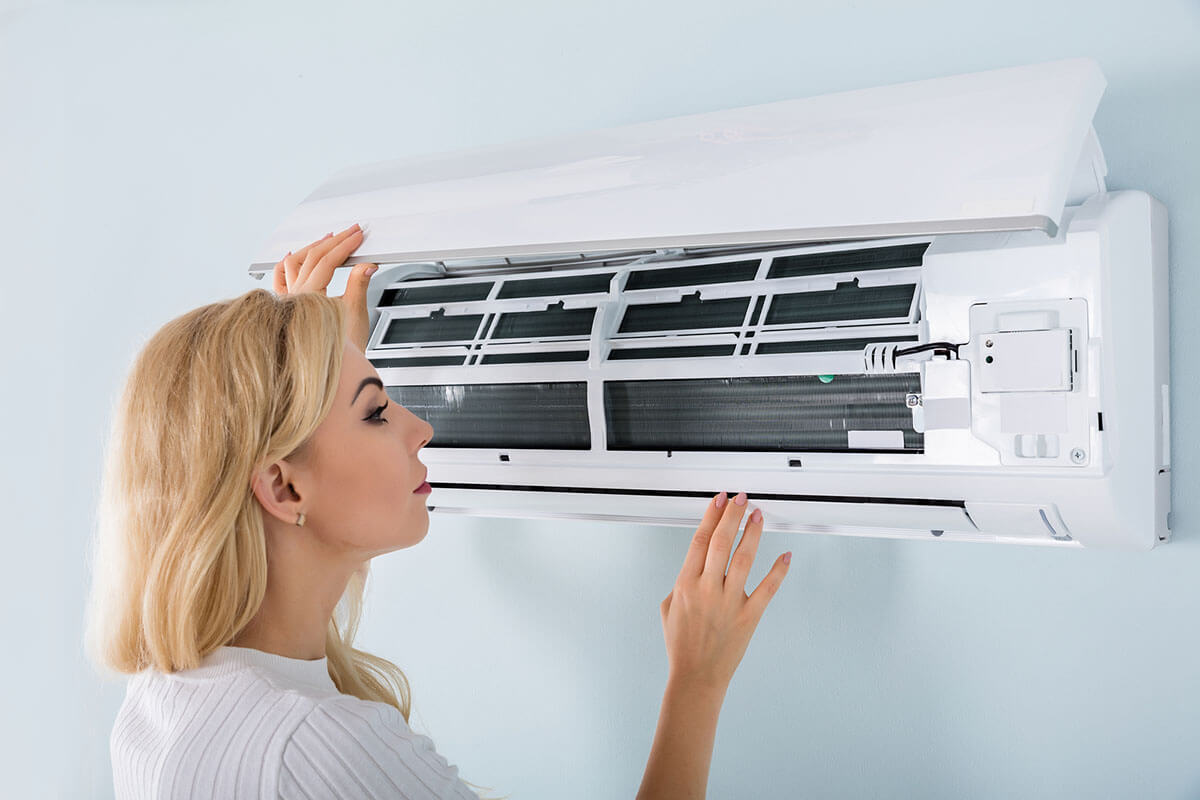Home>Home Maintenance>Why Does My Air Conditioner Sound Like Running Water
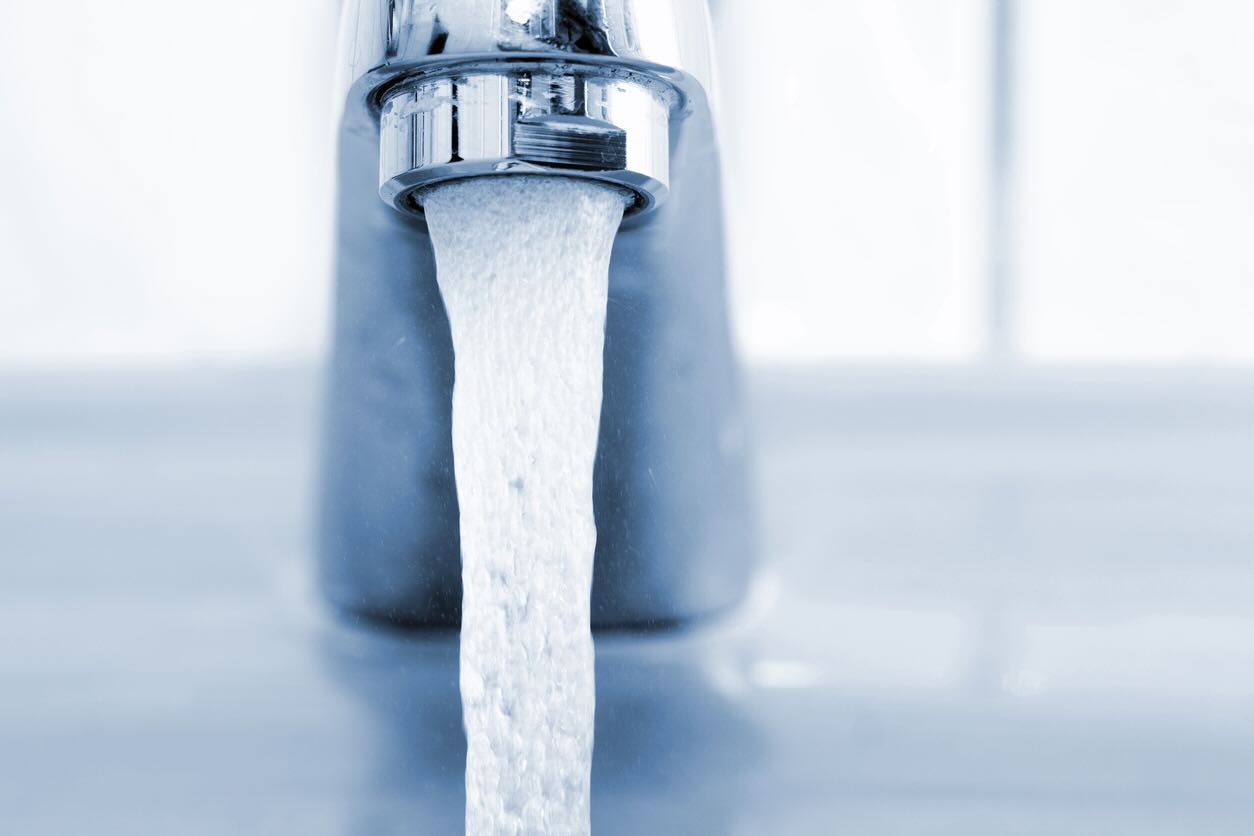

Home Maintenance
Why Does My Air Conditioner Sound Like Running Water
Modified: September 2, 2024
Learn why your air conditioner might sound like running water and how to fix it. Take care of your home maintenance with our expert tips and advice.
(Many of the links in this article redirect to a specific reviewed product. Your purchase of these products through affiliate links helps to generate commission for Storables.com, at no extra cost. Learn more)
Introduction
Welcome to your home comfort oasis, where the air is cool and refreshing. But what happens when your serene space is interrupted by the disconcerting sound of running water coming from your air conditioner? Don’t worry, you’re not alone.
Many homeowners experience the puzzling phenomenon of their air conditioners producing sounds that resemble running water. While it may be tempting to ignore these sounds and hope they disappear on their own, understanding the causes behind them is crucial for maintaining the efficiency and longevity of your cooling system.
In this article, we will explore the common causes of running water sounds in air conditioners, so you can identify and address the issue without delay. By familiarizing yourself with these potential culprits, you can take the necessary steps to rectify the problem and restore the tranquility of your home.
So, let’s dive in and unravel the mystery behind your air conditioner’s watery serenade.
Key Takeaways:
- Don’t ignore the sound of running water from your air conditioner. It could be caused by condensation issues, refrigerant leaks, or fan motor problems. Addressing these issues promptly ensures a peaceful and efficient home environment.
- Regularly cleaning and maintaining your air conditioner’s condensate drain, replacing clogged air filters, and addressing fan motor issues can eliminate the sound of running water. Seeking professional help for refrigerant leaks and water leaks ensures optimal system performance.
Read more: Why Does My AC Sound Like Running Water
Understanding the Sounds Your Air Conditioner Makes
Before delving into the specific causes of running water sounds, it’s important to have a general understanding of the range of noises your air conditioner may produce. Just like any mechanical system, air conditioners generate different sounds during their operation.
Some of these sounds are normal and indicate that the system is functioning properly. For example, you may hear a gentle whirring sound from the fan or a slight clicking noise as the unit turns on or off. These sounds are typically nothing to worry about.
However, certain sounds, such as the running water noise, may indicate underlying issues that require attention. It’s crucial to distinguish between normal operational sounds and those that could be signs of trouble.
When it comes to running water sounds, they typically mimic the sound of water trickling or flowing. This can range from a gentle babbling brook to a more pronounced and persistent stream-like sound. These sounds are usually heard when the air conditioner is running, especially during the cooling cycle.
Now that we have a basic understanding of the sounds to be mindful of, let’s explore the common causes behind these running water noises in your air conditioner.
Common Causes of Running Water Sounds in Air Conditioners
1. Condensation Issues:
A common culprit behind running water sounds in air conditioners is condensation issues. Air conditioners work by removing moisture from the air, which typically results in condensation. This condensation should be properly drained away from the unit. However, if there are any obstructions or improper installation of the condensate drain, it can lead to water buildup and the sound of running water.
- 1.1 Blocked Condensate Drain:
- 1.2 Improperly Installed Condensate Drain:
If the condensate drain becomes clogged with dirt, debris, or mold, it can impede the flow of water and cause a backup. This backup can result in the sound of running water as the water tries to find alternative pathways.
If the condensate drain is not installed correctly, it can cause water to accumulate in certain areas of the air conditioner, leading to the sound of running water. Proper installation ensures optimal drainage and prevents water from pooling.
2. Refrigerant Leak:
A refrigerant leak can also be responsible for the sound of running water in your air conditioner. The refrigerant is a crucial component that absorbs heat from the air, allowing the cooling process to occur. When there is a leak in the refrigerant lines, you may hear hissing or bubbling sounds as the refrigerant escapes.
3. Water Leaks:
In some cases, the running water sound may be caused by water leaks within the air conditioner. This can happen if there is a faulty drain pan or if the refrigerant lines are leaking or have become loose. These leaks can create a dripping or flowing water sound.
- 3.1 Faulty Drain Pan:
- 3.2 Leaking or Loose Refrigerant Lines:
If the drain pan, which collects condensation, is damaged or not properly aligned, it can cause water to accumulate and overflow. This can result in the sound of running water as excess water is redirected.
A leaking or loose refrigerant line can cause water to escape and generate running water sounds. If you suspect a refrigerant leak, it’s essential to have it repaired promptly to prevent further issues.
4. Air Filter Problems:
A clogged or dirty air filter can impact the airflow in your air conditioner. When the airflow is restricted, it can lead to condensation buildup, which may create the sound of running water. Regularly replacing or cleaning your air filter can help prevent this issue.
5. Fan Motor Issues:
The fan motor in your air conditioner can also contribute to running water sounds if it’s experiencing problems. Two common issues include worn-out fan motor bearings and loose or damaged fan blades. These can cause the fan to operate improperly and produce unusual sounds, including the sound of running water.
- 5.1 Worn-out Fan Motor Bearings:
- 5.2 Loose or Damaged Fan Blades:
If the bearings in the fan motor become worn out or damaged, it can result in a variety of unusual noises, including the sound of running water.
Loose or damaged fan blades can create turbulence and cause water droplets to form, resulting in running water sounds.
6. Undersized Ductwork or Improper Installation:
If your air conditioner’s ductwork is too small for the system or if it is improperly installed, it can lead to airflow issues. Insufficient airflow can cause condensation to build up, resulting in the sound of running water.
- 6.1 Improper Slope on Condensate Lines:
- 6.2 Insufficient Duct Insulation:
If the condensate lines in your air conditioner are not sloped correctly, it can prevent proper water drainage and create the sound of running water.
If the ductwork is not properly insulated, it can result in temperature fluctuations and condensation, leading to the sound of running water.
Identifying and resolving the specific cause of the running water sound in your air conditioner requires careful inspection and professional assistance. Consulting with a qualified HVAC technician will help ensure a proper diagnosis and effective resolution.
Now that you are aware of the common causes of running water sounds in air conditioners, you can take the necessary steps to address the issue promptly. By resolving these underlying problems, you can enjoy a peaceful and efficient cooling experience in your home.
Condensation Issues
Condensation issues are a common cause of running water sounds in air conditioners. When your air conditioner operates, it removes moisture from the air, resulting in condensation. Proper drainage of this excess water is crucial to prevent the sound of running water. Let’s explore two possible condensation-related issues.
1.1 Blocked Condensate Drain
A blocked condensate drain is a common reason why you may hear running water sounds in your air conditioner. Over time, the condensate drain can become clogged with dirt, debris, or even mold, obstructing the flow of water. When the drain is blocked, the excess water has nowhere to go and can cause backups. As a result, you may hear the sound of running water as the water seeks alternative pathways.
To address a blocked condensate drain, it’s essential to clean it thoroughly. Begin by locating the drain line, usually a PVC pipe, near the indoor unit of your air conditioner. Use a wet/dry vacuum or a pipe cleaner to remove any debris or blockages. If you’re unsure about performing this task, it’s best to consult a professional HVAC technician to ensure proper cleaning and prevent future complications.
1.2 Improperly Installed Condensate Drain
In addition to blockages, an improperly installed condensate drain can also lead to the sound of running water in your air conditioner. If the drain is not installed correctly, water may accumulate in specific areas of the unit, causing the water to slosh around and create the running water sound.
If you suspect an improperly installed condensate drain, it’s crucial to have it inspected and repaired by a qualified technician. They will ensure the drain is properly aligned and functioning optimally to redirect the water flow away from the air conditioner. Proper installation of the condensate drain will prevent water from pooling and eliminate the sound of running water.
Addressing condensation issues in your air conditioner is vital not only for eliminating the annoying sound of running water but also for maintaining the efficiency and performance of your cooling system. By addressing these issues promptly, you can prevent further damage and enjoy a more peaceful and trouble-free indoor environment.
Refrigerant Leak
A refrigerant leak can be another culprit behind the running water sound in your air conditioner. Refrigerant is a vital component of your cooling system, responsible for absorbing heat from the air and facilitating the cooling process. When there is a leak in the refrigerant lines, you may hear hissing or bubbling sounds as the refrigerant escapes.
2.1 Hissing or Bubbling Sounds
If you notice a distinct hissing or bubbling sound coming from your air conditioner, it’s a strong indication of a refrigerant leak. The sound occurs as the refrigerant, under pressure, escapes from the damaged or compromised portion of the refrigerant lines.
A refrigerant leak not only causes the running water sound but also affects the cooling efficiency of your air conditioner. It can lead to reduced cooling capacity, increased energy consumption, and potential damage to other components of the system.
If you suspect a refrigerant leak, it is crucial to seek professional help from a certified HVAC technician. They will be able to locate and repair the leak, recharge the refrigerant if necessary, and ensure that your air conditioner is functioning optimally again. Attempting to fix a refrigerant leak yourself can be dangerous and may further damage your system.
Remember, a refrigerant leak is not only causing the sound of running water but also impacting the overall performance of your air conditioner. By addressing the refrigerant leak promptly, you can restore the efficiency of your cooling system and enjoy a comfortable indoor environment.
Water Leaks
Another potential cause of running water sounds in air conditioners is water leaks within the system. These leaks can result from various issues, such as a faulty drain pan or leaking refrigerant lines. Let’s explore these two common sources of water leaks in more detail.
3.1 Faulty Drain Pan
A faulty drain pan can lead to water leaks and the sound of running water in your air conditioner. The drain pan is designed to collect condensation that forms during the cooling process. If the drain pan is damaged, cracked, or not properly aligned, it can allow water to accumulate and overflow. This excess water will then create the sound of running water as it finds its way out of the pan.
If you suspect a faulty drain pan, it’s important to have it inspected and repaired. In some cases, a simple realignment or replacement of the drain pan may be necessary. A professional HVAC technician can assess the situation, identify the source of the leak, and take the appropriate measures to rectify the issue. Ensuring the proper functioning of the drain pan will prevent water accumulation and eliminate the running water sound.
3.2 Leaking or Loose Refrigerant Lines
Leaking or loose refrigerant lines can also contribute to water leaks and the sound of running water in your air conditioner. When the refrigerant lines are damaged or not properly connected, refrigerant can escape and cause water to form. This water leakage can result in a continuous dripping or flowing sound, resembling running water.
If you suspect leaking or loose refrigerant lines, it’s crucial to contact a professional technician to address the issue. They will inspect the lines, identify the leaks, and repair or replace the damaged portions. Taking prompt action will prevent further refrigerant loss, restore the proper operation of your air conditioner, and eliminate the running water sound.
Addressing water leaks in your air conditioner is essential to protect your system from further damage and maintain a comfortable indoor environment. Consulting with a qualified HVAC technician will ensure a proper diagnosis and effective resolution of the water leakage, eliminating the running water sound and promoting the optimal performance of your air conditioning system.
Air Filter Problems
Another possible cause of running water sounds in air conditioners is related to issues with the air filters. Air filters play a critical role in ensuring the air quality and efficiency of your cooling system. When these filters become clogged or dirty, it can lead to several problems, including the sound of running water.
4.1 Clogged or Dirty Air Filters
Clogged or dirty air filters can restrict the airflow in your air conditioner, affecting its overall performance. When the airflow is compromised, it can lead to condensation buildup within the unit. This excess moisture may manifest as the sound of running water, as the water tries to navigate through the blocked pathways.
Regularly checking and replacing your air filters is essential for preventing this issue. Over time, filters accumulate dust, dirt, and other debris, reducing their effectiveness. As a general guideline, filters should be inspected every month and replaced as needed, typically every three months or according to the manufacturer’s recommendations. If you have pets or allergies, more frequent filter changes may be necessary.
To replace your air filters, locate the filter compartment near the blower motor or the return air duct. Remove the old filter and replace it with a new one that matches the size and type specified by your system. Make sure to follow the manufacturer’s instructions for proper installation.
By regularly maintaining and replacing your air filters, you can help ensure proper airflow, improve indoor air quality, and prevent the running water sound caused by condensation buildup. Additionally, clean filters contribute to the overall efficiency and longevity of your air conditioning system.
Remember, clean and unclogged air filters are key to a well-functioning air conditioner and a peaceful home environment. Make it a habit to inspect and replace your filters regularly to prevent running water sounds and optimize the performance of your cooling system.
Read more: Why Does My Car Sound Like A Lawnmower
Fan Motor Issues
When it comes to running water sounds in air conditioners, issues with the fan motor can be a contributing factor. The fan motor plays a crucial role in the circulation of air within the system. Let’s explore two common fan motor problems that can result in the sound of running water.
5.1 Worn-out Fan Motor Bearings
Over time, the bearings in the fan motor can become worn out or damaged, leading to unusual noises including the sound of running water. The bearings are responsible for reducing friction and allowing the fan to rotate smoothly. When they deteriorate, the fan motor may produce a variety of sounds, including the running water sound.
If you suspect worn-out fan motor bearings, it’s best to consult a professional HVAC technician. They can assess the condition of the bearings and recommend the appropriate course of action, which may involve lubrication, repair, or replacement of the fan motor. By addressing the worn-out bearings, you can restore the smooth operation of the fan motor and eliminate the running water sound.
5.2 Loose or Damaged Fan Blades
Loose or damaged fan blades can also contribute to running water sounds in air conditioners. When the fan blades are not properly secured or have incurred damage, they can create turbulence and cause water droplets to form. This can lead to the sound of running water as the droplets come into contact with other surfaces within the unit.
If you suspect loose or damaged fan blades, it’s important to have them inspected and fixed by a professional. A qualified technician can assess the condition of the fan blades and ensure they are properly tightened or replaced if necessary. By addressing this issue, you can restore the proper airflow and eliminate the running water sound caused by the interaction of the blades with the water droplets.
Addressing fan motor issues is essential not only for eliminating the running water sound but also for maintaining the efficiency and longevity of your air conditioning system. By ensuring the smooth operation of the fan motor and the integrity of the fan blades, you can enjoy a quiet and effective cooling experience within your home.
Undersized Ductwork or Improper Installation
Issues with the ductwork or improper installation can also contribute to the sound of running water in your air conditioner. When the ductwork is undersized or installed incorrectly, it can result in airflow problems and condensation buildup. This, in turn, can lead to the sound of running water. Let’s explore two common issues related to ductwork and installation.
6.1 Improper Slope on Condensate Lines
The condensate lines in your air conditioner are responsible for removing the excess water produced during the cooling process. If these lines are improperly sloped, it can prevent proper water drainage and contribute to the sound of running water. Without the proper slope, water may become stagnant in the lines, leading to backups and the associated sound.
To address this issue, it’s important to have a qualified HVAC technician inspect the condensate lines. They can ensure that the lines are correctly sloped for optimal drainage. Additionally, the technician can remove any obstructions or build-ups in the lines to facilitate proper water flow and eliminate the running water sound.
6.2 Insufficient Duct Insulation
The insulation of your ductwork plays a vital role in maintaining the temperature of the air as it travels through the system. Insufficient duct insulation can result in temperature fluctuations and condensation formation, leading to the sound of running water. Poorly insulated ducts can also cause the air to lose coolness and efficiency.
If you suspect insufficient duct insulation, it’s recommended to consult a professional HVAC technician. They can assess the insulation in your ductwork and recommend the appropriate insulation material and thickness for optimal performance. By improving insulation, you can reduce condensation and the associated running water sound while enhancing the energy efficiency of your air conditioning system.
Addressing undersized ductwork or improper installation issues is crucial for preventing the sound of running water in your air conditioner. By ensuring proper slope on condensate lines and adequate insulation in the ductwork, you can minimize condensation build-up, maintain efficient airflow, and enjoy a quiet and effective cooling experience in your home.
Conclusion
Running water sounds in air conditioners can be a source of confusion and frustration for homeowners. However, understanding the common causes behind these sounds is essential for addressing the issues effectively. By identifying and resolving the underlying problems, you can restore the tranquility of your home and ensure the optimal performance of your cooling system.
We discussed several potential causes of running water sounds in air conditioners, including condensation issues, refrigerant leaks, water leaks, air filter problems, fan motor issues, and undersized ductwork or improper installation. Each of these issues requires specific attention and professional expertise to rectify.
Condensation issues, such as a blocked condensate drain or an improperly installed drain, can lead to water buildup and the sound of running water. Regular cleaning and maintenance of the condensate drain are essential to ensure proper drainage and prevent backups.
A refrigerant leak can produce hissing or bubbling sounds, resembling running water. It’s crucial to seek professional help to locate and repair the leak, restoring the efficiency of your air conditioner.
Water leaks, which can be caused by a faulty drain pan or leaking refrigerant lines, can lead to the sound of running water. Inspecting and repairing these issues will prevent water accumulation and eliminate the running water sound.
Clogged or dirty air filters can restrict airflow and result in condensation buildup, leading to the sound of running water. Regular replacement or cleaning of air filters is necessary to prevent this issue and maintain optimal airflow.
Fan motor issues, such as worn-out bearings or loose/damaged blades, can contribute to the running water sound. Consulting with a professional technician will ensure proper diagnosis and repair of these issues.
Undersized ductwork or improper installation can cause condensation issues and the associated sound of running water. Proper slope on condensate lines and adequate insulation are crucial for addressing these issues and preventing condensation buildup.
In conclusion, if your air conditioner is producing the sound of running water, it’s important not to ignore it. By understanding the common causes discussed in this article and seeking professional assistance, you can address the issues effectively and restore your cooling system’s performance. A professional HVAC technician can diagnose the problem accurately and provide the necessary repairs or maintenance to eliminate the running water sound, ensuring a peaceful and efficient home environment.
Frequently Asked Questions about Why Does My Air Conditioner Sound Like Running Water
Was this page helpful?
At Storables.com, we guarantee accurate and reliable information. Our content, validated by Expert Board Contributors, is crafted following stringent Editorial Policies. We're committed to providing you with well-researched, expert-backed insights for all your informational needs.

